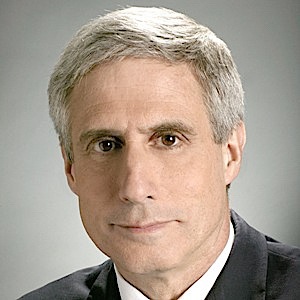Yale’s Bazell to speak at UWA Undergraduate Research Symposium

LIVINGSTON — The University of West Alabama will host its fourth annual Undergraduate Research Symposium on Tuesday, March 10, showcasing scientific research conducted by students who have partnered with faculty mentors to further their pursuit of careers in a diverse range of topics, approaches and interests. The keynote speaker is Dr. Bob Bazell, a professor at Yale University and former NBC Nightly News reporter.
The poster event is open to the public and will be held at UWA’s Student Union Building in the Tiger’s Den from 9:30 a.m. until 3:30 p.m. Undergraduates from STEM (science, technology, engineering and mathematics) will present their current and recent research projects. Categories of research findings on display include biology, chemistry/physics, environmental sciences, mathematics, and other science related fields. The keynote address by Bazell and the awards ceremony will follow at 6 p.m. at the Bell Conference Center on campus.
Bazell, who teaches molecular, cellular and developmental biology at Yale, is the former chief science and health correspondent for NBC News. He holds a bachelor’s degree in biochemistry and a doctorate in immunology, both from the University of California, Berkeley. He built his career on two fields of interest, journalism and science.
Bazell made history in the early 1980s when he became one of the first network news correspondents to report on the AIDS epidemic, for which he received the Alfred I. duPont-Columbia Award, given in honor of excellence in broadcast and digital journalism in the public service. He was a reporter and NBC’s chief space correspondent during the disaster surrounding the explosion of NASA Space Shuttle Challenger. Bazell spent 38 years at NBC before joining the Yale faculty.
Also among Bazell’s professional honors and awards are five Emmys, the Maggie Award from Planned Parenthood, the Hope Funds Award, and the George Foster Peabody Award, presented to him for his reporting on science and medicine, including AIDS, cancer treatment, dangers of cellular phones, and alternative modes of healthcare. He is the author of the book “HER-2: The Making of Herceptin, a Revolutionary Treatment for Breast Cancer,” published in 1998.
Bazell will meet with UWA students and faculty as part of his visit for the symposium. He serves on an advisory committee for the college’s Biology Opportunities and Scholarships for Success, BOSS, project, which is funded by a $609,000 National Science Foundation grant.
According to faculty in UWA’s College of Natural Sciences and Mathematics (NSM), independent research represents a unique learning strategy for many students. Undergraduate research at NSM is an integral part of student learning. The professors say that intense immersion in research helps undergraduate students develop their scholarly pursuits. Professors are paired with students based on their research interests and styles to provide a mentoring opportunity for students as they hone their skills.
The Symposium also serves as a resource for undergraduates not yet engaged in research. These students can learn how their peers developed their intellectual interests, current projects and faculty or community connections. In addition the URS program is a portal through which students, faculty, staff, prospective students and alumni can witness the manner in which student projects can serve the greater university community by sharing research on key topics that can help improve the quality of life in the region.
